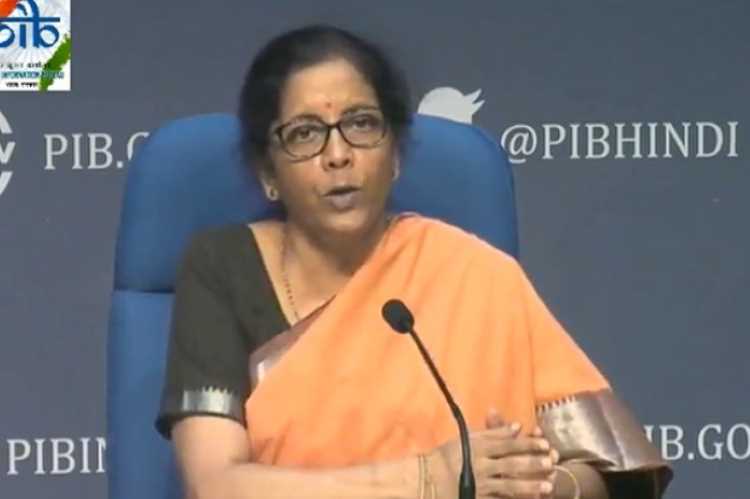
By Deepthi Mathew
Budget 2021: The Union Budget for the financial year 2021-22 will be presented in the Lok Sabha by finance minister Nirmala Sitharaman on February 1. In the words of the finance minister, it would be a one in 100 years budget as the economy is in the midst of an unprecedented crisis. The Indian economy went into a total lockdown for more than two months in 2020 to contain the spread of the Covid-19 pandemic. It resulted the economy contracting 23.9% in first quarter of the current financial year (2020-21). And, with the GDP contracting for the second quarter also, Indian economy has slipped into a technical recession. The decline in economic activity has a put a dent on the revenue collection of the Union government.
Tax revenue of the government is proportional to economic activities that are taking place in an economy. As the economy was on a standstill due to the lockdown, tax revenue realisation in the first quarter of 2020-21 was just 8% of the budget estimate, compared with 15% in the same period of the previous fiscal. Though the monthly GST collections crossed the Rs 1 lakh crore towards the end of calendar year 2020, it won’t be enough for the government to meet its fiscal deficit target.
READ I Budget 2021: Ideas to put Indian economy back on track
Budget 2021: Tepid revenue mop-up a concern
As of November 2020, total revenue receipts of the Union government stood at Rs 8.3 lakh crore, about 37% of the budget estimate. The fiscal deficit shot to Rs 10.7 lakh crore in November, which is 135% of the budget estimate. As per the advance estimates of NSO, Indian economy is expected to contract by 7.7% in 2020-21. Thus, with a higher numerator and a smaller denominator, fiscal deficit as a percent of the GDP would settle in a higher range. It is expected that the fiscal deficit would cross 7% of the GDP compared with the target of 3.5%.
Any major announcement with regard to income tax is not expected in Budget 2021. Though raising the basic tax exemption limit could be a morale booster for the middle class, the weak fiscal position of the government will act as a hurdle. And, it won’t be feasible for the government to cut down its expenditure as it would take time for private investment to pick up. In such a scenario, the government might look for more avenues to raise its revenue.
READ I Union Budget 2021: Seven ideas to transform Indian agriculture
New levies in Budget 2021 can be counter productive
If the talk among the policy circles is anything to go by, the government may introduce a coronavirus cess and raise long-term capital gains tax (LTCG). However, raising taxes or imposing a cess in the present situation could do more harm than good as it could further dampen the economic activities. To tide over the economic crisis and to generate demand, the government is expected to spend more. The finance minister will have to perform a tightrope walk to ensure that fiscal discipline is not breached.
The disinvestment target for 2021-22 should also be realistic as the realisation in the current fiscal was much lower than the target. The government should have a clear roadmap for disinvestment as it has the potential to bring relief to the exchequer.
READ I Budget 2021: Strategic imperatives for defending a $5 trillion economy
One could expect the fiscal deficit to remain on the higher range. The market is anticipating a higher fiscal deficit in 2021-22. The estimates of both fiscal deficit and GDP for FY22 are important as they impact the whole budget math.
Higher fiscal deficit can have other repercussions for the economy. A major consequence of high deficit is that it crowds out private investment. However, in the present scenario, a high fiscal deficit is inevitable. Yet, the government should have a fiscal consolidation roadmap as the economy limps back to normalcy.
(Deepthi Mathew is an economist at Geojit Financial Services.)
